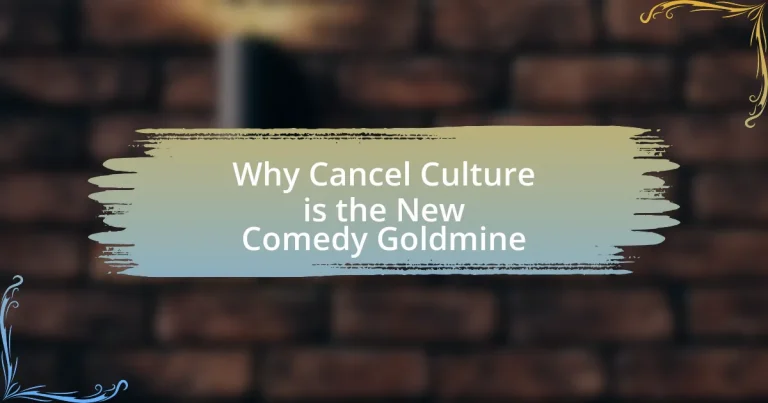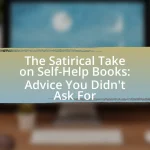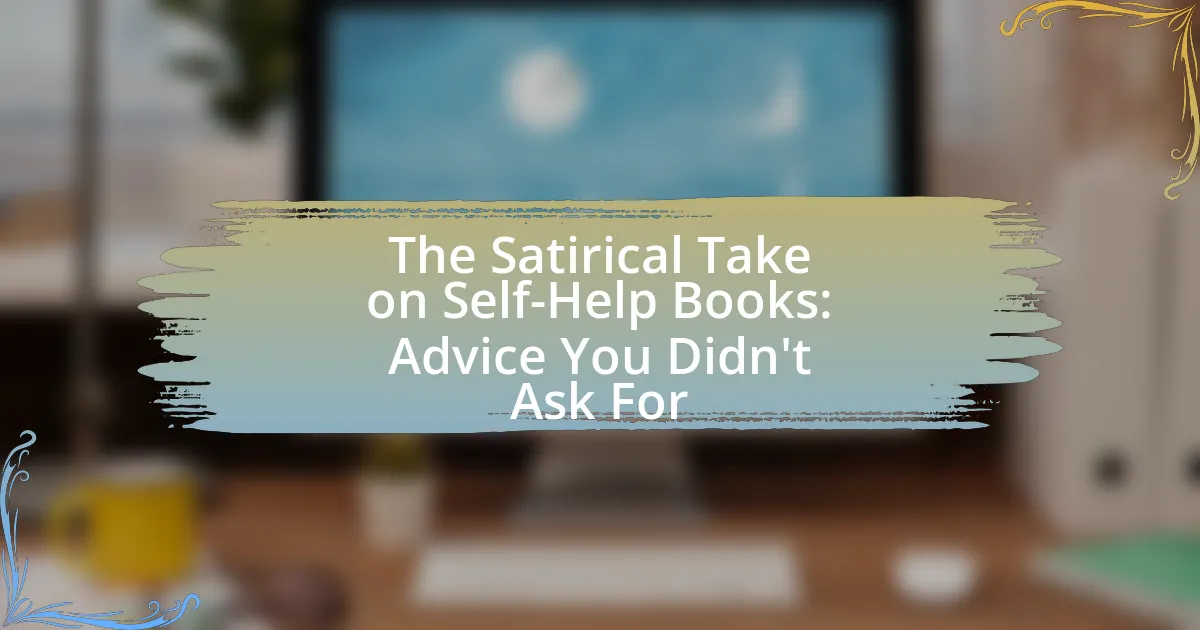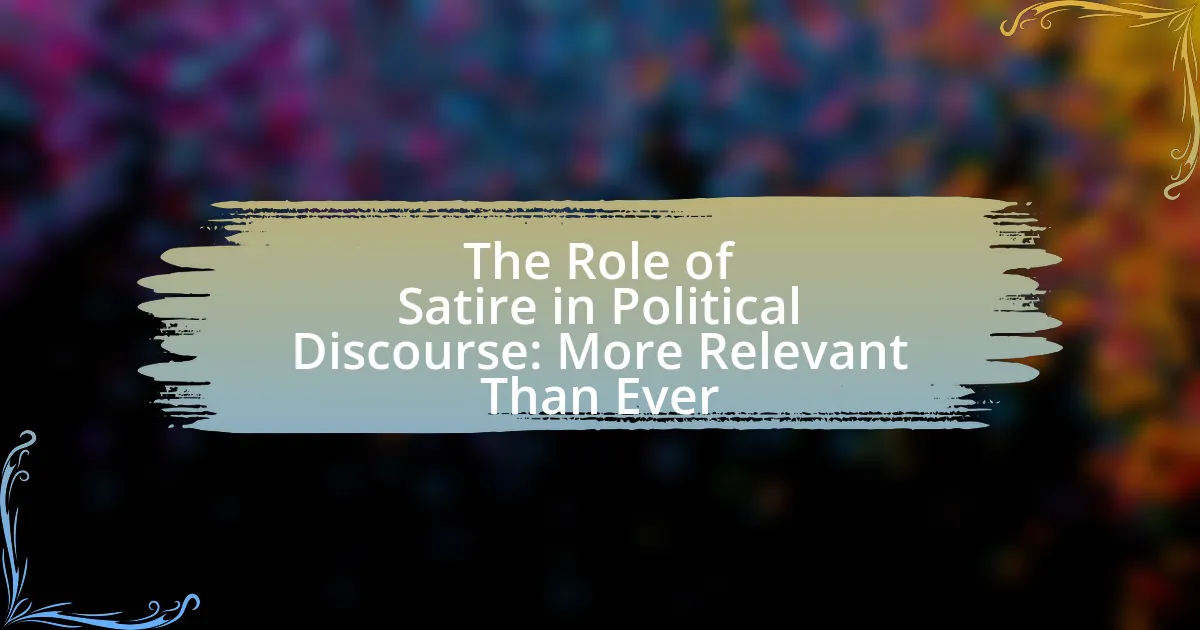Cancel culture is a social phenomenon characterized by public shaming and ostracism for perceived offensive behavior, significantly impacting the comedy landscape. Comedians face increased scrutiny over their material, often leading to self-censorship or adaptation of content to align with social norms. The article explores the origins of cancel culture, its manifestation in the entertainment industry, and how comedians navigate the challenges it presents. It also examines the dual perspectives on cancel culture among audiences and comedians, the emergence of new comedic voices, and the implications for the future of comedy in a rapidly evolving social environment.
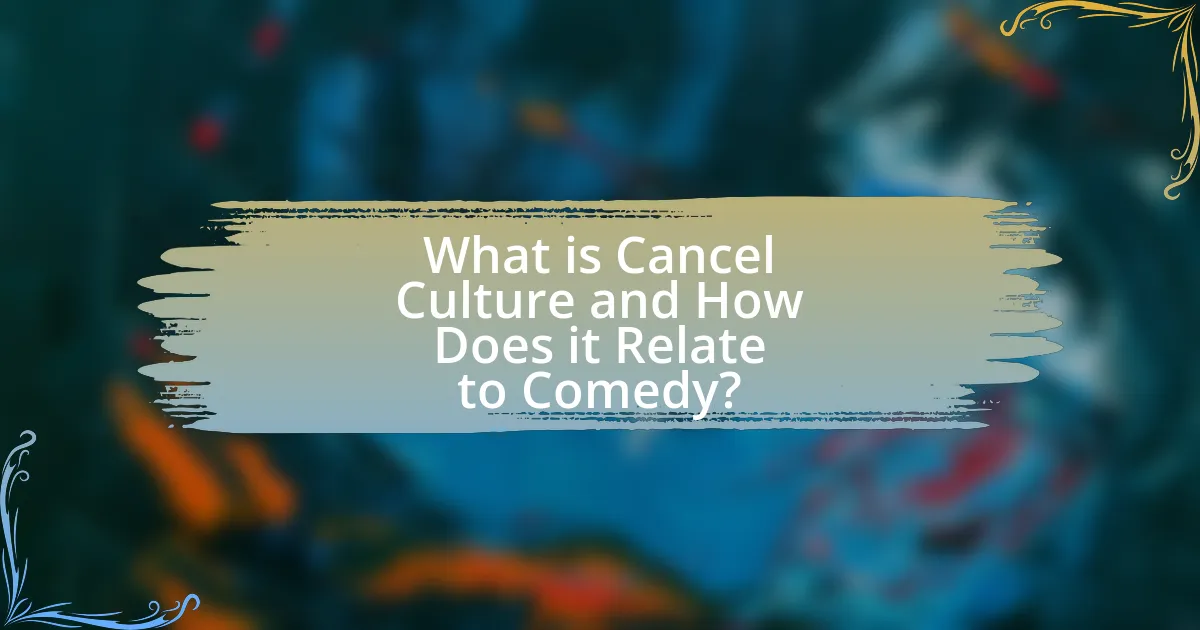
What is Cancel Culture and How Does it Relate to Comedy?
Cancel culture refers to the social phenomenon where individuals or groups are publicly shamed, boycotted, or ostracized for perceived offensive behavior or statements, often facilitated by social media. In the context of comedy, cancel culture has become a significant factor as comedians navigate the boundaries of humor, often facing backlash for jokes that may be deemed inappropriate or offensive. This dynamic creates a complex relationship where comedians may use controversial topics as material, leading to discussions about freedom of expression versus accountability. The impact of cancel culture on comedy is evident in the increased scrutiny of comedic content, prompting comedians to adapt their material to avoid backlash while also sparking debates about the role of humor in addressing sensitive issues.
Why has Cancel Culture become a significant topic in today’s society?
Cancel Culture has become a significant topic in today’s society due to its impact on public discourse and accountability. This phenomenon reflects a growing demand for social justice, where individuals and organizations face repercussions for actions or statements deemed offensive or harmful. The rise of social media platforms has amplified this trend, allowing for rapid dissemination of information and mobilization of public opinion, as seen in high-profile cases involving celebrities and corporations. Research indicates that 70% of Americans believe that public figures should be held accountable for their actions, highlighting the societal shift towards greater scrutiny of behavior.
What are the origins of Cancel Culture?
Cancel culture originated in the early 2010s, primarily within social media platforms, where individuals began publicly calling out and boycotting those perceived to have acted unethically or offensively. This phenomenon gained traction as a response to social justice movements, particularly among marginalized communities advocating for accountability and change. The term “cancel culture” itself became widely recognized around 2016, coinciding with increased visibility of online activism and the viral nature of social media, which allowed for rapid dissemination of information and collective action against public figures.
How does Cancel Culture manifest in the entertainment industry?
Cancel culture manifests in the entertainment industry through public backlash against individuals or projects deemed offensive, leading to boycotts, social media campaigns, and professional consequences. High-profile cases include the cancellation of television shows or films due to controversial statements or actions by cast members, such as the backlash against Kevin Hart for past homophobic tweets, which resulted in him stepping down from hosting the Oscars in 2019. This phenomenon reflects a growing societal demand for accountability and sensitivity regarding issues of race, gender, and sexuality, influencing production decisions and altering the landscape of comedy and entertainment.
In what ways does Cancel Culture influence comedic content?
Cancel Culture influences comedic content by imposing heightened scrutiny on jokes and themes, leading comedians to navigate sensitive topics more cautiously. This scrutiny often results in comedians either self-censoring to avoid backlash or adapting their material to align with current social norms. For instance, comedians like Dave Chappelle have faced significant public backlash for controversial jokes, prompting discussions about the boundaries of humor and free speech. Additionally, the rise of social media amplifies audience reactions, making it easier for cancel culture to impact a comedian’s career and prompting a shift towards more inclusive or politically correct humor. This dynamic creates a landscape where comedians may leverage the tension surrounding cancel culture as a source of material, thus transforming potential pitfalls into comedic goldmines.
How do comedians navigate the challenges posed by Cancel Culture?
Comedians navigate the challenges posed by Cancel Culture by adapting their material to be more sensitive and inclusive while also using satire to critique the very culture that seeks to silence them. They often engage in self-reflection and audience feedback to gauge the appropriateness of their content, ensuring it resonates without crossing lines that could lead to backlash. For instance, comedians like Dave Chappelle and Hannah Gadsby have addressed Cancel Culture directly in their routines, using humor to explore its implications and their personal experiences with it. This approach not only allows them to maintain their comedic voice but also fosters dialogue about societal norms and accountability.
What are the risks and rewards for comedians addressing Cancel Culture in their routines?
Comedians face significant risks and rewards when addressing Cancel Culture in their routines. The primary risk involves potential backlash from audiences and social media, which can lead to public shaming, loss of gigs, or damage to their careers, as seen with comedians like Kevin Hart, who faced backlash for past tweets. Conversely, the reward lies in the ability to engage audiences with relevant social commentary, potentially increasing their popularity and relevance, as comedians like Dave Chappelle have demonstrated by successfully tackling controversial topics. This duality highlights the precarious balance comedians must navigate between humor and societal sensitivities.
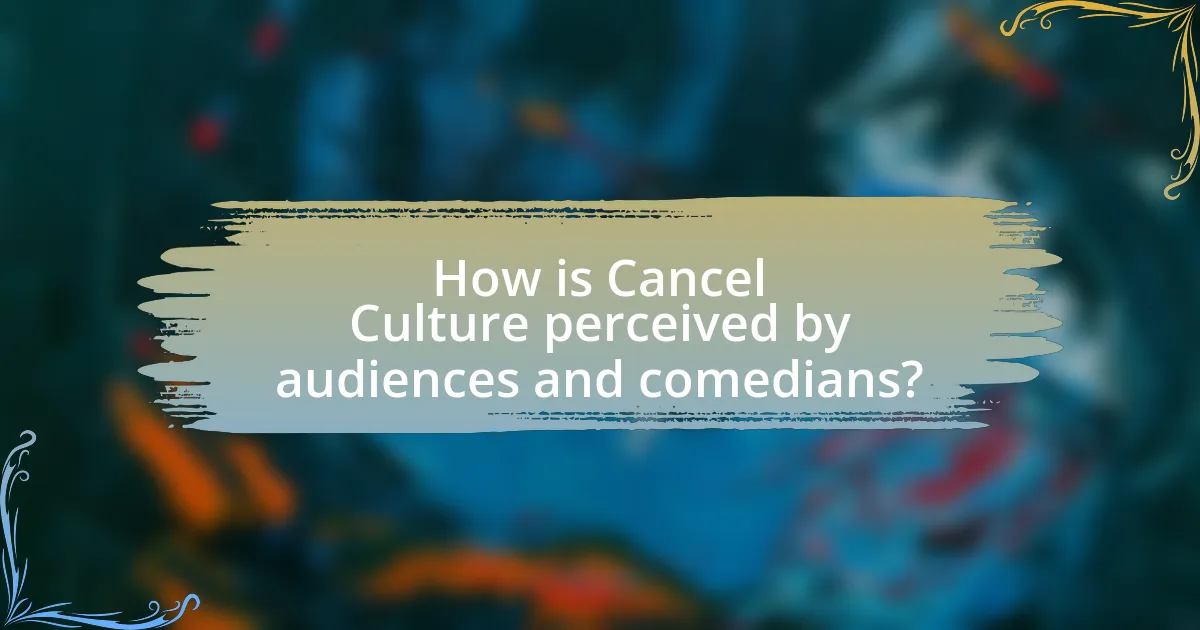
How is Cancel Culture perceived by audiences and comedians?
Cancel culture is perceived by audiences and comedians as a double-edged sword, where audiences often view it as a necessary accountability mechanism, while comedians frequently see it as a threat to creative expression. Audiences tend to support cancel culture when it aligns with social justice movements, believing it holds individuals accountable for harmful behavior, as evidenced by public backlash against figures like Kevin Hart and J.K. Rowling. Conversely, comedians argue that cancel culture stifles humor and free speech, with many expressing concerns that it creates an environment of fear, limiting their ability to address controversial topics. This tension illustrates the complex dynamics between societal values and artistic freedom in contemporary comedy.
What are the differing viewpoints on Cancel Culture among comedians?
Comedians have differing viewpoints on Cancel Culture, with some viewing it as a threat to free expression while others see it as a necessary accountability mechanism. For instance, comedians like Dave Chappelle argue that Cancel Culture stifles creativity and limits the ability to address controversial topics through humor. In contrast, comedians such as Hannah Gadsby advocate for Cancel Culture as a means to challenge harmful narratives and promote social justice. This divide reflects broader societal debates about the balance between artistic freedom and the impact of comedy on marginalized communities.
How do comedians use satire to comment on Cancel Culture?
Comedians use satire to comment on Cancel Culture by exaggerating its absurdities and highlighting the contradictions within societal reactions to controversial topics. Through humor, they create a space for critical reflection, often pointing out how the fear of being “canceled” can lead to self-censorship and stifled discourse. For instance, comedians like Dave Chappelle and Ricky Gervais have addressed Cancel Culture in their routines, using sharp wit to challenge the notion that certain subjects are off-limits for discussion. This approach not only entertains but also provokes thought about the implications of Cancel Culture on free speech and artistic expression, making it a relevant and engaging topic in contemporary comedy.
What role does audience reaction play in shaping comedic performances?
Audience reaction plays a crucial role in shaping comedic performances by providing immediate feedback that influences a comedian’s delivery and content. Comedians often adjust their material based on audience responses, using laughter or silence as indicators of what resonates or fails to connect. For instance, studies show that live audiences can significantly impact the pacing and timing of jokes, as comedians may choose to extend or shorten their routines based on real-time reactions. This dynamic interaction not only enhances the performance but also allows comedians to gauge societal norms and sensitivities, particularly in the context of cancel culture, where audience reactions can dictate the acceptability of certain topics.
How does Cancel Culture create opportunities for new comedic voices?
Cancel culture creates opportunities for new comedic voices by challenging established norms and encouraging diverse perspectives in comedy. As traditional comedians face backlash for outdated or offensive material, emerging comedians can fill the void by offering fresh, relevant content that resonates with contemporary audiences. This shift is evident in the rise of platforms like social media, where new voices can gain visibility and connect with audiences directly, bypassing traditional gatekeepers. For instance, comedians such as Hannah Gadsby and Hasan Minhaj have gained prominence by addressing social issues and personal experiences that reflect current societal conversations, demonstrating that cancel culture can catalyze the emergence of innovative comedic talent.
What types of comedy thrive in a Cancel Culture environment?
Dark comedy and self-deprecating humor thrive in a Cancel Culture environment. Dark comedy often addresses taboo subjects, allowing comedians to explore sensitive topics in a way that provokes thought and discussion, which can resonate with audiences who feel stifled by societal norms. Self-deprecating humor enables comedians to take ownership of their flaws or mistakes, making them relatable and disarming criticism. For instance, comedians like Dave Chappelle and Sarah Silverman have successfully navigated Cancel Culture by using these styles, often sparking conversations about the very issues that might lead to cancellation. This approach not only engages audiences but also provides a buffer against backlash, as it demonstrates vulnerability and awareness of the cultural landscape.
How do emerging comedians leverage Cancel Culture for their material?
Emerging comedians leverage Cancel Culture by using it as a source of humor and commentary on societal norms. They often address controversial topics that are at the forefront of public discourse, allowing them to connect with audiences who are navigating the complexities of modern social issues. For instance, comedians like Hannah Gadsby and Dave Chappelle have incorporated elements of Cancel Culture into their routines, using satire to critique both the culture itself and the reactions it provokes. This approach not only engages audiences but also sparks conversations about accountability and free speech, making their material relevant and thought-provoking.

What are the implications of Cancel Culture for the future of comedy?
Cancel culture significantly impacts the future of comedy by creating an environment where comedians must navigate heightened scrutiny over their material. This scrutiny can lead to self-censorship, as performers may avoid controversial topics to prevent backlash, potentially stifling creativity and limiting comedic expression. For instance, comedians like Dave Chappelle have faced intense criticism for their jokes, which illustrates the tension between artistic freedom and audience sensitivity. Additionally, the rise of social media amplifies the consequences of jokes, as viral outrage can quickly escalate, influencing public perception and career trajectories. Consequently, while cancel culture may push comedians to be more thoughtful about their content, it also risks homogenizing comedy, as performers may prioritize safety over authenticity.
How might Cancel Culture evolve in the coming years?
Cancel culture may evolve into a more nuanced and structured form of accountability in the coming years. As society increasingly recognizes the complexities of public discourse, individuals and organizations may adopt clearer guidelines for addressing offensive behavior, leading to a shift from outright cancellation to opportunities for dialogue and rehabilitation. This evolution is supported by trends in social media platforms implementing features that promote constructive conversations rather than punitive measures, reflecting a growing desire for understanding and resolution rather than exclusion.
What trends are emerging in comedy as a response to Cancel Culture?
Emerging trends in comedy as a response to Cancel Culture include a shift towards self-deprecating humor, increased use of satire, and the rise of alternative comedy platforms. Comedians are increasingly adopting self-deprecating humor to navigate sensitive topics, allowing them to connect with audiences while mitigating backlash. Additionally, satire has become a prominent tool for critiquing societal norms and the Cancel Culture phenomenon itself, as seen in the works of comedians like John Oliver and Hasan Minhaj, who use humor to address serious issues. Furthermore, alternative platforms such as podcasts and social media are gaining popularity, enabling comedians to express themselves without the constraints of traditional media, exemplified by figures like Joe Rogan and Bill Burr, who leverage these channels to reach audiences directly. These trends reflect a strategic adaptation to the evolving landscape of comedy in the face of Cancel Culture.
How can comedians adapt their styles to remain relevant in a Cancel Culture landscape?
Comedians can adapt their styles to remain relevant in a Cancel Culture landscape by focusing on self-deprecating humor, observational comedy, and social commentary that encourages dialogue rather than division. This approach allows comedians to engage audiences without alienating them, as self-deprecating humor fosters relatability and observational comedy highlights shared experiences. For instance, comedians like John Mulaney and Hasan Minhaj have successfully navigated sensitive topics by using personal anecdotes and cultural observations, which resonate with diverse audiences while minimizing backlash. By prioritizing empathy and understanding in their material, comedians can maintain relevance and connect with audiences in a rapidly changing social environment.
What strategies can comedians employ to succeed in a Cancel Culture environment?
Comedians can succeed in a Cancel Culture environment by adopting a strategy of self-awareness and adaptability in their material. This involves understanding the sensitivities of their audience and being willing to evolve their comedic style to avoid crossing lines that could lead to backlash. For instance, comedians like Dave Chappelle have navigated controversial topics by framing their jokes in a way that encourages dialogue rather than division, demonstrating an awareness of the cultural context. Additionally, comedians can focus on observational humor that highlights shared human experiences, which tends to resonate more positively with audiences. By doing so, they can maintain their comedic edge while minimizing the risk of being “canceled.”
How can comedians balance humor and sensitivity in their material?
Comedians can balance humor and sensitivity in their material by carefully considering their audience and the context of their jokes. This involves understanding the potential impact of their words and choosing topics that allow for humor without causing harm. For instance, comedians often use self-deprecating humor or focus on shared human experiences to connect with audiences while minimizing offense. Research indicates that humor that promotes inclusivity and empathy tends to resonate better, as seen in studies by the University of California, which found that jokes that foster a sense of community are less likely to provoke backlash. By prioritizing respect and awareness, comedians can navigate the complexities of humor in a sensitive cultural landscape.
What best practices should comedians follow to navigate Cancel Culture effectively?
Comedians should prioritize sensitivity and awareness of their audience to navigate Cancel Culture effectively. This involves understanding the cultural context and potential impact of their material, ensuring that jokes do not perpetuate harmful stereotypes or offend marginalized groups. Research indicates that comedians who engage in self-reflection and adapt their content based on audience feedback are more successful in maintaining their careers amidst Cancel Culture. For example, comedians like Dave Chappelle have faced backlash but have also demonstrated the ability to address controversial topics thoughtfully, which can lead to constructive dialogue rather than outright cancellation.
